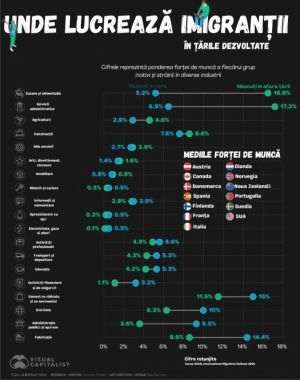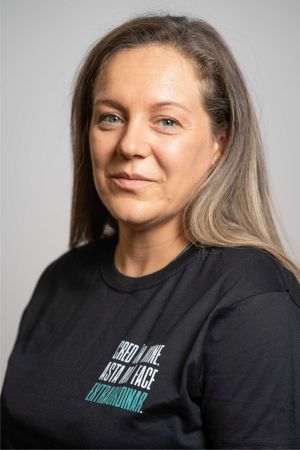The period of economic boom has exacerbated the asymmetry between customers and banks, and this aspect has created the need to create an entity that would provide consumers with the option for the alternative resolution of disputes with banks, namely the Center for Alternative Resolution of Lawsuits in the Banking System (CSALB), says Bogdan Olteanu, the deputy governor of the National Bank of Romania (BNR).
The official of the Central Bank said: "The financial sector has made this financial effort that I praise, to find the necessary mechanisms for this structure, to remove the need for consumers to bear any costs".
The creation of the SAL has produced a series of controversies, as many people feel that it is a complicated process.
Bogdan Olteanu said, quoted by Agerpres: "For one of the parties, for the banks, what is so complicated is that there currently is a system that treats them asymmetrically compared to the treatment that consumers get! Yes, that's how things work nowadays, at least in Europe. There is an asymmetry in treatment that balances out the relationship between consumers and banks and it is natural for it to be that way, because there is an asymmetry in accessing information, there is an asymmetry in the processing of that information between consumers and banks, and then the institutional system rebalances the relationship which makes it possible, for instance, for a decision rendered here to be mandatory, while consumers are allowed to challenge it further if they do not agree with it".
In the opinion of the NBR deputy governor, lawyers are against the system because they are losing money the moment consumers decide not to go to court to resolve the lawsuit with the bank and they go to the Center instead: "It is a success and I want to celebrate it. We are among the countries that have succeeded in building such a Center. I hope that next year we are going to find that we have also made it functional. (...) Good luck to banks in scrubbing their reputation of the dirt that has accumulated during the boom period. We are, I hope, on the right path to reestablish this relationship of trust, where citizens go to confidently deposit the money earned through their work with the bank, and other citizens go in with confidence to borrow that money, to use it and then pay it back, so that the depositor can get it back at any time".
• Speaking about the fact that the president of the SAL has worked in banks for over ten years, Păunescu explained that the College for the Coordination of the CSALB needed experienced people, with financial knowledge
The Center for Alternative Resolution of Lawsuits in the Banking System (CSALB) represents a viable solution for reestablishing the balance between consumers and the financial-banking institutions, as the procedure is free of charge for consumers and subject to a deadline of 90 days, says Alexandru Păunescu, the head of the Legal Department of the NBR and a member in the College for the Coordination of the Center.
He explained: "Why is this Center for Alternative Resolution needed? Because of the context that we are in - with consumers not trusting financial banking services and the existence of a large number of ongoing lawsuits. For those reasons, the Center has been seen as an option for reestablishing the balance between consumers and the financial and banking institutions, as a viable solution to reduce the costs tied to resolving these lawsuits in court. These costs are derived from the long periods needed for resolution through the courts, by the diverging interpretations of the courts in similar cases and the by the unpredictable solutions of the courts. From the point of view of the relationship between consumers and the Center, the benefits of alternative resolutions are certain: the procedures are initiated at the consumers' initiative, they are free of charge and they take less time than the resolution of a classic lawsuit in court".
According to him, the actual resolution of the litigations will be done by conciliators, who will be selected based on criteria stipulated in the Ordinance for the creation of the Center and according to a methodology set by the management of the entity, namely by the College for the Coordination of the Center.
The SAL center will be financed by the financial-banking institutions, and the contribution has been set at 600,000 Euros per year, but the conciliators will not be paid directly by banks, but instead will be compensated directly through the Center, regardless of the solution given, whether it was in favor of the borrower or of the bank, Păunescu further says. He also said that those conciliators will be independent from banks.
Concerning the quota that each institution will need to contribute to the budget of the Center, it will be decided according to the "market share of the bank on the retail segment and based on the number of lawsuits" which the bank has under way with consumers, said Alexandru Păunescu.
The financing of the SAL Center, as well as the members of its executive structure are two of the aspects criticized by some specialists and consumers, among others, as there are concerns that if the funding is coming from the banking system, then the decisions could be subjective.
The SAL center is led by a Coordination College made up of five members, one from the NBR< the ANPC, the RBNA and the consumer associations, and one independent member, elected by the other four.
Consumers have doubts over the fifth member of the College, "who should be independent". Simona Vâlceanu, who holds the position of president of the College, has been employed by several banks between 1997 and 2009, and was the head of the Legal Department of the headquarters of the Romanian Commercial Bank (BCR).
Previously, the position of independent member of the Coordination College was held by Brânduşa Ştefănescu, former judge and former vice-president of the International Court of Arbitrage of the Chamber of Commerce and Industry of Romania.
"Her replacement in the College has not been explained in any way so far. Besides, the entire activity of the Coordination College lacks transparency, as the website of the institution provides very little information about its activity since its creation", the Association of Romanian Financial Services Users (AURSF) stated recently.
Speaking about the fact that the independent member who also holds the position of president of the College currency, has a vast expertise in the banking sector, Alexandru Păunescu explained that the College needed experienced people, with financial knowledge, but he said that the members of the College will not be in charge of resolving lawsuits, but will only provide the infrastructure needed for the procedures.
The Center currently has five ongoing cases, and people interested can obtain information about this procedure from the website of the entity. In the coming period, several operations to increase awareness of for this Center will be performed, as banks are required through the ordinance to notify their customers about the existence of this entity.
For now, there are 12 conciliators who are certified for the resolution of such lawsuits, a number which is considered sufficient for the time being, since according to estimates, a conciliator can manage about 10 cases a month.
Concerning the actual procedure for sending in the complaints, submissions will take place predominantly via electronic means, but the option of conciliators traveling to the plaintiff's home is also being considered, for plaintiffs not living in Bucharest. Furthermore, according to Păunescu, "the litigation can even be resolved without the parties being present".
Displeased customers ought to know that they can talk to this center only after presenting proof of having attempted to work out an amicable solution with the bank. That proof can consist of an e-mail received from the bank or of the request submitted with the bank with a registration number, which has not received an answer within a "reasonable" delay.
Consumers should also know that complaints over amounts smaller than 1,000 lei or those made in bad-faith, which can obstruct the activity of the Center.
• Pandelică, ANPC: "The SAL center can simultaneously help relieve the workload of the courts, which will be busy with the giving in payment and with the insolvency of individuals"
The Center for the Alternative Resolution of Lawsuits in the Financial-Banking System (CSALB) will help relieve the workload of the courts pertaining to the lawsuits between borrowers and banks, will ensure a balanced way of resolving the disputes between the two parties, and its credibility will be reinforced after the resolution of the initial cases, says the president of the National Consumer Protection Authority, Bogdan Pandelică.
According to him, the normalization of the relationship between lenders and consumers can only happen through efficient communication with consumers, backed by complete, coherent and precise information. "There is currently a large range of ways to resolve these issues: mediation, the institutions of the state, the ANPC, the courts. (...) The alternative resolution of the lawsuits is a new way of resolving disputes, an amicable one. From the point of view of the amicable nature, this system is nothing new. The system is different from mediation (...). Ensuring equidistance when a case is being analyzed is primordial, and conciliators will need to take on the role of a judge, to see things from both points of view, to remove any biases", Pandelică further said.
He explained that this new center can help relieve the workload of the courts, which will be busy with the giving in payment and individual insolvencies. The SAL center began its operation this year.


























































